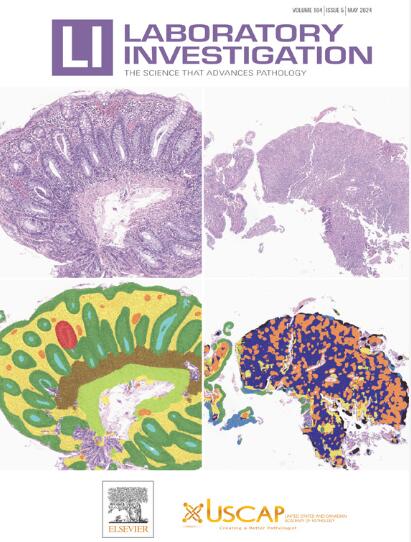基于深度学习的肿瘤病理全幻灯片图像分析。
IF 4.2
2区 医学
Q1 MEDICINE, RESEARCH & EXPERIMENTAL
引用次数: 0
摘要
病理学是现代癌症治疗的基石。随着精准肿瘤学的发展,由于个性化的癌症治疗依赖于准确的生物标志物评估,对患者的组织病理学诊断和分层的需求日益增加。近年来,全切片成像技术的快速发展,使传统组织学切片的高分辨率数字化成为可能,有望提高组织病理学评估的精度和效率。特别是卷积神经网络(CNN)、图卷积网络(GCN)和Transformer等深度学习方法,由于能够处理高维和复杂的图像数据,在提高癌症病理全幻灯片图像(WSI)分析的灵敏度和准确性方面显示出很大的希望。深度学习模型与wsi的集成使我们能够探索和挖掘病理学家视觉感知之外的形态学特征,这可以帮助自动化临床诊断,评估组织病理分级,预测临床结果,甚至发现新的形态学生物标志物。在这篇综述中,我们提出了一个将深度学习与wsi结合的综合框架,强调了深度学习驱动的wsi分析如何推进癌症治疗的临床任务。此外,我们批判性地讨论了将基于深度学习的数字病理学转化为临床实践的机遇和挑战,应该考虑支持癌症患者的个性化治疗。本文章由计算机程序翻译,如有差异,请以英文原文为准。
Deep Learning–Powered Whole Slide Image Analysis in Cancer Pathology
Pathology is the cornerstone of modern cancer care. With the advancement of precision oncology, the demand for histopathologic diagnosis and stratification of patients is increasing as personalized cancer therapy relies on accurate biomarker assessment. Recently, rapid development of whole slide imaging technology has enabled digitalization of traditional histologic slides at high resolution, holding promise to improve both the precision and efficiency of histopathologic evaluation. In particular, deep learning approaches, such as Convolutional Neural Network, Graph Convolutional Network, and Transformer, have shown great promise in enhancing the sensitivity and accuracy of whole slide image (WSI) analysis in cancer pathology because of their ability to handle high-dimensional and complex image data. The integration of deep learning models with WSIs enables us to explore and mine morphologic features beyond the visual perception of pathologists, which can help automate clinical diagnosis, assess histopathologic grade, predict clinical outcomes, and even discover novel morphologic biomarkers. In this review, we present a comprehensive framework for incorporating deep learning with WSIs, highlighting how deep learning–driven WSI analysis advances clinical tasks in cancer care. Furthermore, we critically discuss the opportunities and challenges of translating deep learning–based digital pathology into clinical practice, which should be considered to support personalized treatment of cancer patients.
求助全文
通过发布文献求助,成功后即可免费获取论文全文。
去求助
来源期刊

Laboratory Investigation
医学-病理学
CiteScore
8.30
自引率
0.00%
发文量
125
审稿时长
2 months
期刊介绍:
Laboratory Investigation is an international journal owned by the United States and Canadian Academy of Pathology. Laboratory Investigation offers prompt publication of high-quality original research in all biomedical disciplines relating to the understanding of human disease and the application of new methods to the diagnosis of disease. Both human and experimental studies are welcome.
 求助内容:
求助内容: 应助结果提醒方式:
应助结果提醒方式:


